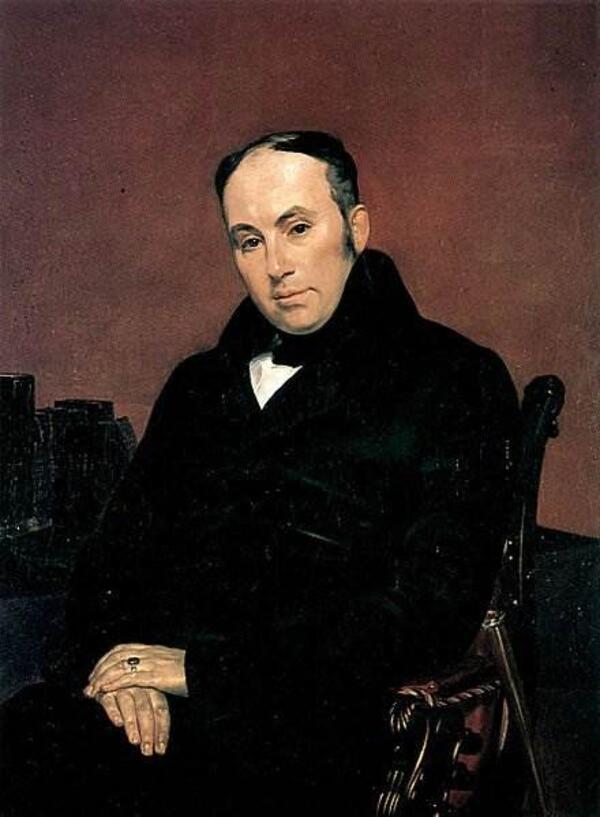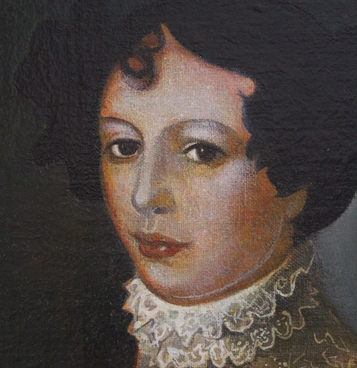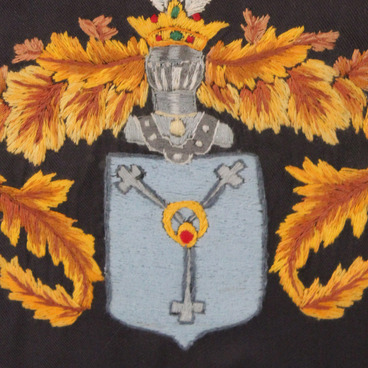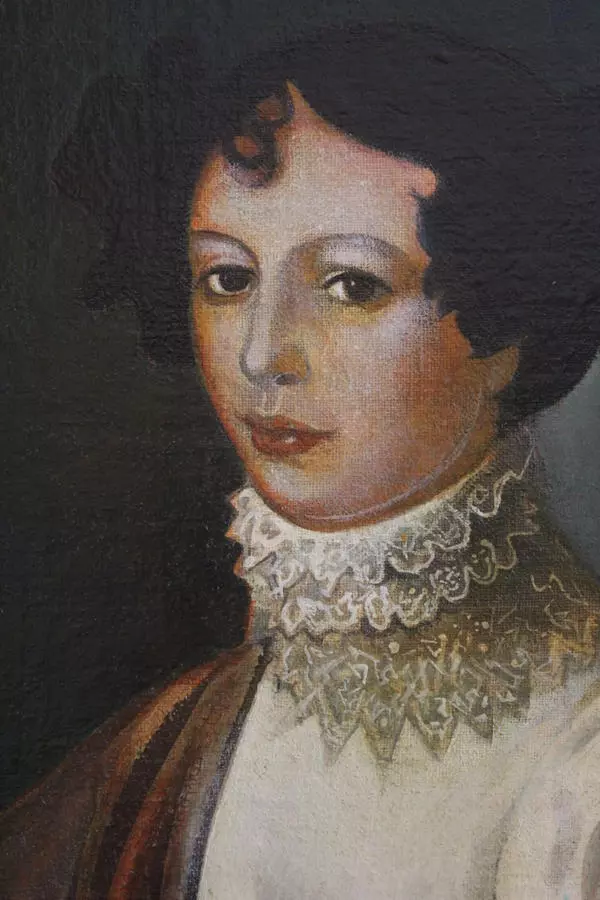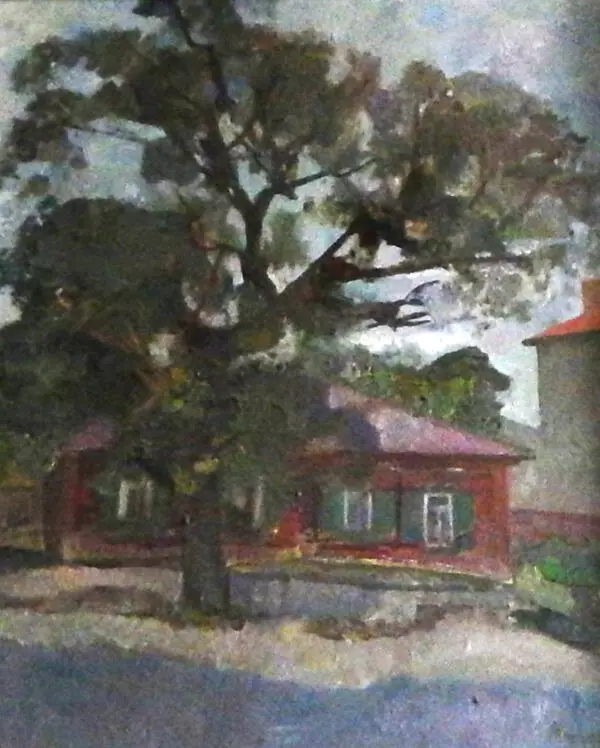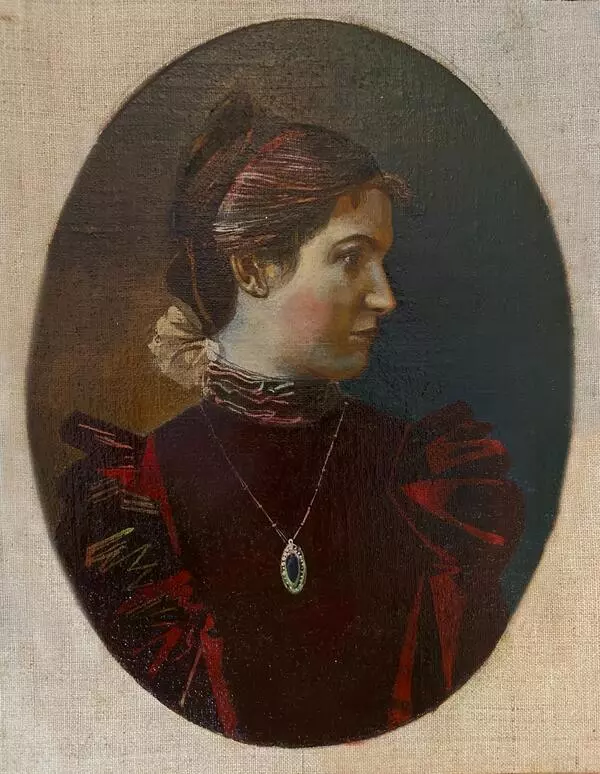VasIly Zhukovsky was a poet, translator, literary critic. Zhukovsky was born on February 9, 1783 in the village of MIshenskoye, Belyovsky district, Tula Governorate. He was the son of the landowner Afanasy Ivanovich Bunin and the captured Turkish woman Salkha, who was brought by the servants to the lord from the war as a trophy. In Russia, Salkha learned Russian and was christened with the name Elizabeth. The illegitimate child received his surname and patronymic from his father’s friend, Andrey Grigoryevich Zhukovsky. Afanasy Ivanovich’s wife, MarIa Grigoryevna, accomplished the will of her dying husband, and brought up VasIly as her own son.
The views and literary tastes of the young Zhukovsky were influenced by his studies in the Moscow Noble University School, where he studied in 1797-1800 and by the ‘Friendly literary society’ following the traditions of noble liberalism. He became known in literature in 1802 when he wrote the elegy ‘Rural cemetery’. Since 1808, his poetry became more and more romantic, he wrote ballads (‘LyudmIla’, ‘SvetlAna’, ‘Aeolian harp’ and others), in which he recreates the world of folk legends, church or chivalric legends, which were far from the reality, but at the same time, they opened up the human spiritual world. In the same year, ZhukOvsky became the editor of the ‘Europe’s Messenger’ magazine.
In 1812, when the war with Napoleon began, Zhukovsky joined the people’s army. His response to the war events was the poem ‘the Singer in the camp of Russian soldiers’ (1812), which immediately became widely known. In early 1813 he became ill with typhoid fever and resigned. From 1817, Vasily Andreevich served at the court of Nicholas I: first as a teacher of the Russian language for the Grand Duchess Alexandra Feodorovna, then from 1826 to 1841 he was a mentor to the heir, the future Emperor Alexander II. In 1837, while accompanying his educatee in his trip across Russia, Zhukovsky visited Yelets. In his travel diary on July 7 he wrote: ‘Yelets is a big city, with a large merchant community. Up to 300 merchants. We were staying at the merchant’s Koraulov’s house. After his resignation in 1841, he went to Germany for medical treatment. There, in addition to poetry, he did some drawing. He managed to get married and have a family only at the end of his life. In 1812, Zhukovsky asked for the hand of his niece Maria Protasova for marriage, with whom he was hopelessly in love, but was twice refused. In 1841, when he was already 58, he married Elizabeth, the 18-year-old daughter of the painter Yevgraf Reytern. They had 2 children - Pavel and Alexandra. He became blind by the end of his life. He died in Baden-Baden on 24 April 1852. He was buried in the Alexander Nevsky Lavra in Saint Petersburg.
The views and literary tastes of the young Zhukovsky were influenced by his studies in the Moscow Noble University School, where he studied in 1797-1800 and by the ‘Friendly literary society’ following the traditions of noble liberalism. He became known in literature in 1802 when he wrote the elegy ‘Rural cemetery’. Since 1808, his poetry became more and more romantic, he wrote ballads (‘LyudmIla’, ‘SvetlAna’, ‘Aeolian harp’ and others), in which he recreates the world of folk legends, church or chivalric legends, which were far from the reality, but at the same time, they opened up the human spiritual world. In the same year, ZhukOvsky became the editor of the ‘Europe’s Messenger’ magazine.
In 1812, when the war with Napoleon began, Zhukovsky joined the people’s army. His response to the war events was the poem ‘the Singer in the camp of Russian soldiers’ (1812), which immediately became widely known. In early 1813 he became ill with typhoid fever and resigned. From 1817, Vasily Andreevich served at the court of Nicholas I: first as a teacher of the Russian language for the Grand Duchess Alexandra Feodorovna, then from 1826 to 1841 he was a mentor to the heir, the future Emperor Alexander II. In 1837, while accompanying his educatee in his trip across Russia, Zhukovsky visited Yelets. In his travel diary on July 7 he wrote: ‘Yelets is a big city, with a large merchant community. Up to 300 merchants. We were staying at the merchant’s Koraulov’s house. After his resignation in 1841, he went to Germany for medical treatment. There, in addition to poetry, he did some drawing. He managed to get married and have a family only at the end of his life. In 1812, Zhukovsky asked for the hand of his niece Maria Protasova for marriage, with whom he was hopelessly in love, but was twice refused. In 1841, when he was already 58, he married Elizabeth, the 18-year-old daughter of the painter Yevgraf Reytern. They had 2 children - Pavel and Alexandra. He became blind by the end of his life. He died in Baden-Baden on 24 April 1852. He was buried in the Alexander Nevsky Lavra in Saint Petersburg.
